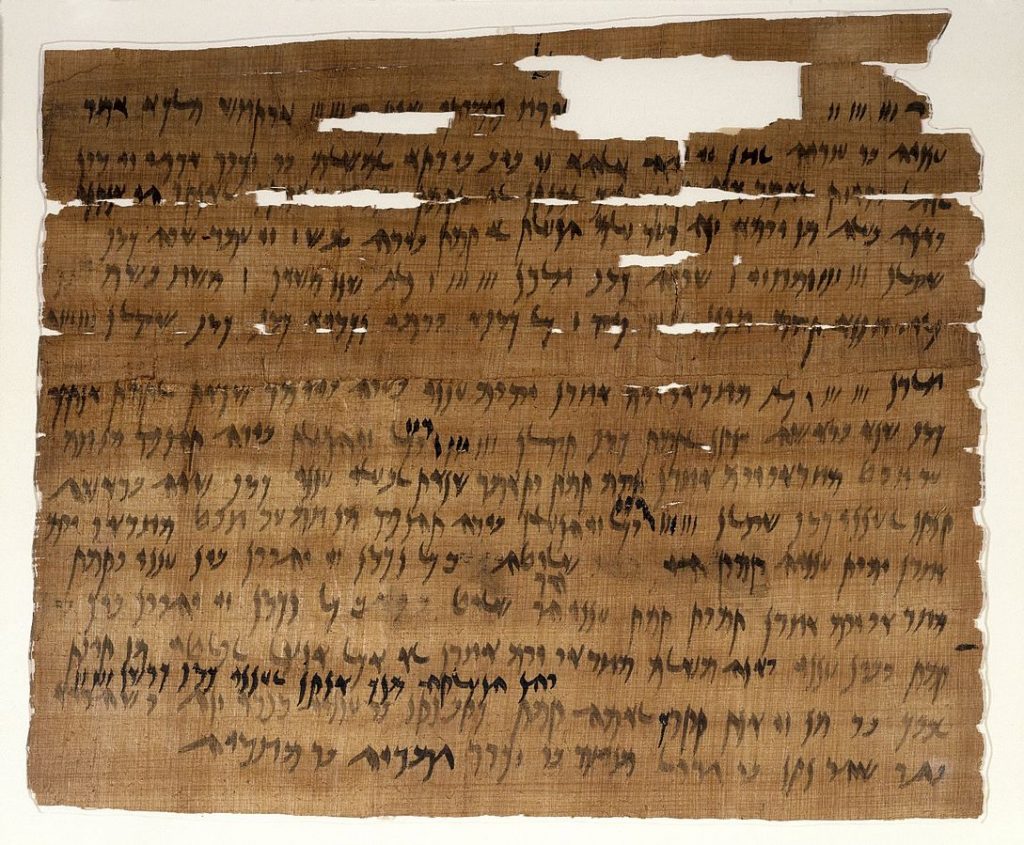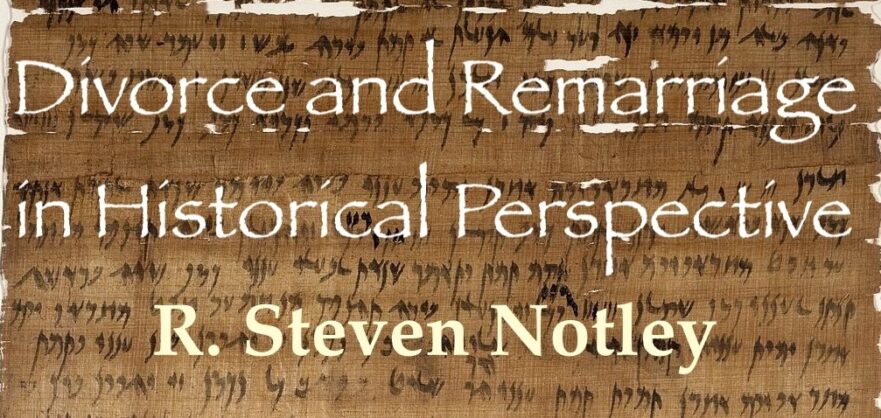How to cite this article: R. Steven Notley, “Divorce and Remarriage in Historical Perspective” Jerusalem Perspective (2004) [https://www.jerusalemperspective.com/6037/].

When studying the Bible in Jerusalem, one soon becomes aware of how important the issues of language, culture and physical setting are to our reading of the Scriptures. Likewise, the words of Jesus are given clarity by the context of their historical setting.
Recently, while preparing for a lecture on Second Temple period history, I was struck by the similarity of Jesus’ teaching about divorce and remarriage to a well-known event recounted by the first-century Jewish historian, Josephus Flavius. The saying of Jesus in question is found in Luke 16:18:
Everyone who divorces his wife and marries another commits adultery. The one who marries a woman divorced from her husband commits adultery.[1]
Traditionally, these words of Jesus have been interpreted to equate divorce and remarriage with adultery. New Testament scholars have remarked that Jesus’ saying, as it is commonly interpreted, is more stringent than both the biblical presentation (Deut. 24:1-2) and contemporary rabbinic understanding. In Judaism, while peace in the home is of the utmost importance, never is it suggested that in principle divorce and remarriage are adulterous. By divorcing Jesus from his historical and religious context, New Testament scholars have cast him as a first-century rogue. Nevertheless, this perception has more to do with how Jesus’ words have been misinterpreted than with Jesus himself.
Paid Content
Premium Members and Friends of JP must be logged in to access this content: Login
If you do not have a paid subscription, please consider registering as a Premium Member starting at $10/month (paid monthly) or only $5/month (paid annually): Register
One Time Purchase Rather Than Membership
Rather than purchasing a membership subscription, you may purchase access to this single page for $1.99 USD. To purchase access we strongly encourage users to first register for a free account with JP (Register), which will make the process of accessing your purchase much simpler. Once you have registered you may login and purchase access to this page at this link:

- [1] This study is dedicated to those who have suffered the agony of divorce. Tragically their pain has been compounded by well-meaning Christians who have distorted both the letter and the spirit of Jesus’ teaching concerning divorce and remarriage. For them, may this article bring a measure of healing. ↩
































































































Comments 3
Antipas, and Herodias are guilty of divorcing their spouses in order to marry each other, thereby committing adultery. This is easily understood.
In giving Antipas, and Herodias as an example, it follows that it applies to all who seek to divorce in order to marry another are committing adultery.
The question of when is it acceptable, in the sight of God, to divorce, and remarry is very often asked.
The only scripture I find regarding this is 1 Corinthians 7:10-16 where it is clearly stated that the believing spouse is free if the unbelieving spouse leaves the marriage.
Any other scripture that can be shared where divorce, and remarriage is concerned would be greatly appreciated.
Hi!
I have a question. If a woman has divorced her husband (I don’t know the reason), is it ok for her to remarry? If so, on which grounds, having in mind 1 Cor 7:10-11 and Rom 7:2?
Regards,
Jonatan
Dear Jonatan,
I’m afraid your question is not quite the kind the editors of JP can answer. JP can investigate historical questions, such as “What was Jesus’ view of divorce?” or “How did the author of Matthew resolve questions of divorce?” but deciding hypothetical questions in the abstract would be neither constructive for our readers nor responsible on our part. The kind of question you ask would have to be decided between the actual persons involved according to their individual circumstances, their personal value systems, and their approaches (or non-approaches) to Scripture.
JP does have one additional article on the issue of divorce from an historical and Jewish perspective:
David N. Bivin, “‘And’ or ‘In order to’ Remarry”
I also highly recommend the scholarship of Peter J. Tomson on the issue of divorce in the New Testament. See Peter J. Tomson, “Divorce Halakhah in Paul and the Jesus Tradition,” in The New Testament and Rabbinic Literature (ed. Reimund Bieringer, Florentino García Martínez, Didier Pollefeyt and Peter J. Tomson; Leiden: Brill, 2010), 289-332.